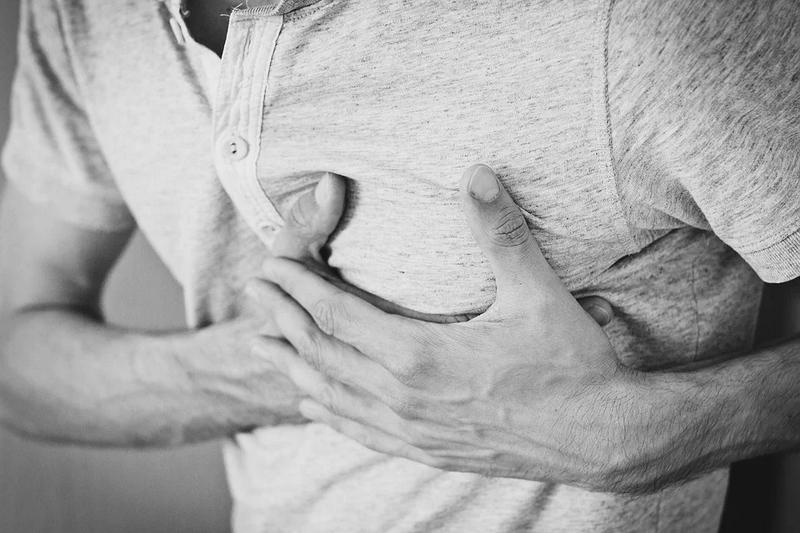How Can I Tell if My Palpitations are Due to Stress or a Heart Condition?
By Dr Reginald Liew

An irregular heartbeat is an unnerving experience. Your first thought might be to call your doctor straight away. If you have any other worrying symptoms, that might not be a bad idea. If this is your first time experiencing a heart palpitation, it may be nothing. Heart palpitations can be a sign of severe health issues, but it might also be that you've had too much coffee.
The following insights can help you understand your heart palpitations, and help you figure out their cause.
What are palpitations?
Heart palpitations feel different depending on the person and what causes the palpitationa>. To some, it may feel like their heart skips a beat. Others may feel like their heart is fluttering or that their heart is beating extra hard or extra fast.
People can feel the palpitations in different areas of their body, such as the neck or back. Some people may only feel uneasy, anxious, or sweaty, not realizing it could be their heart.
Causes
There are different things that can lead to palpitations and the way they feel. Ingesting too much caffeine is a common cause, as are stress, anxiety, and overexertion.
Some other factors that can cause palpitations, unrelated to serious health concerns are:
- Dehydration
- Drinking too much alcohol
- Low blood sugar
- Low blood pressure
- Fever
- Low potassium levels
- Excessive excitement
- Eating too much chocolate
More serious conditions and diseases that can cause heart palpitations include:
- Diabetes
- Anemia
- Heart valve problems
- Hypertrophic cardiomyopathy
- Congenital disabilities
- Overactive thyroid
- Hypotension
How do you tell the difference?
How do you tell if yours are being caused by something serious or if you need to cut down on coffee?
If the palpitations are few and far between, it's probably not serious. Be sure to be aware of what you are doing when the palpitations occur. Think about your recent activities, like:
Did you finish an intense workout?
Have you drunk enough water during the day?
Being aware of the circumstances surrounding your palpitations can give you valuable insight.
Keep track of what the palpitations feel like and if you have any other symptoms. Click a pen or tap a finger to be aware of what your heart rhythm is doing. Is there anything else abnormal about your body? Do you feel dizzy, sweaty, or confused? Note down your heart rhythm and symptoms so you can better describe them to your doctor next time you go in.
Diagnosing Heart Palpitations
Like with any other health concern, see your doctor about heart palpitations if you can’t rule out common issues, like alcohol or exercise. Your doctor can run tests to diagnose or rule out any health conditions. Your primary physician will start by listening for irregularities through a stethoscope. They will also check your blood pressure and run tests to check your potassium, and sugar levels. Chest x-rays can also provide imaging of your heart and lungs. Depending on the results of these tests, your doctor may send you to a specialist for further testing.
Specialists will usually start with an electrocardiogram (ECG). This test measures your heartbeat for irregularities, but it only lasts for a few seconds. Since this is such a short measure, your doctor may ask you to wear a device for a single day up to a few weeks. This records your heart rate and rhythm through sensors placed on your chest, storing the data on a device in your pocket. Your doctor will then analyze that data for any irregularities. If there is a need for longer-term testing, your doctor may implant a device inside your body. Devices like this can record heart-related data for a year or more.
What can I do to stop palpitations?
Your doctor may prescribe medication or therapies to help stop or reduce heart palpitations. If your palpitations aren't related to a severe condition or don't happen often, consider some of the following techniques:
- Deep breathing, yoga, and meditation. These activities can help keep your focus on controlling your body and breathing, which helps regulate your heartbeat.
- A splash of cold water. You can help slow your heartbeat by lowering your body temperature. You can do this by splashing cold water on your face, putting your face in a basin of cold water, or placing a cold towel on your neck.
- Limit or cut stimulants. Caffeine, alcohol, many drugs, and nicotine all increase your heart rhythm. Cutting or reducing your intake of these substances can reduce palpitations.

